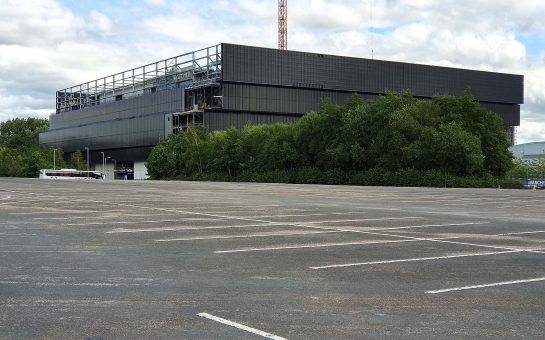In recent times, Manchester City have come under intense scrutiny from UEFA over their failure to comply with Financial Fair Play rules, even being handed a ban from competing in the Champions League for two seasons in February 2020 – which was later overturned on appeal – for giving false accounts about how much money they had received through their sponsorship with ETIHAD Airways.
But that was far from the first instance where the authorities have clamped down heavily on the Blues, as 115 years ago, the FA conducted an investigation into the club about illegal payments to their players, and once found out, the consequences would be devastating and almost led to the club ceasing to exist altogether.
This is the story of the most serious investigation that the FA have ever carried out into Man City, why it came about, and what those consequences were.
Suspicious Upstarts
Although it would be a game between City and Aston Villa in 1905 that indirectly led to the investigation commencing, the story starts some time before that match.
The FA had treated the club with scepticism almost immediately after they won promotion to the First Division for the first time in their history in 1899, as the club were backed by wealthy directors who offered the players handsome wages – in comparison with the standards of the time – in a desperate attempt to reach the top of the English game.
However, in spite of their lavish spending – or because of it, depending on how you choose to view it – the team struggled to gel and were often too reliant on their star man, namely Welsh wing wizard Billy Meredith, to drag them out of trouble.
What made things worse for them was when the FA introduced the maximum wage policy in 1901, capping player wages across all clubs at £4 per week and making bonuses illegal.
This meant that many of City’s players would, theoretically, see their weekly wages reduced significantly, and the club’s bold financial strategy was now under threat.
Coincidentally perhaps, they were relegated in 1902, although they bounced back immediately by winning the Second Division title in 1903.
The following campaign would see them finish second in the First Division and win the first major trophy in their history, as Meredith scored the winner against Bolton in the 1904 FA Cup Final.
They were despised by the authorities, viewed as nothing more than a nouveau-riche club who were buying their way to success and who didn’t have the historical status of teams like Everton and Preston North End.
As you would expect, the FA were suspicious of City’s financial operations and conducted their first investigation into the club in 1904.
Although they didn’t uncover too much, they did find out that there had been irregularities regarding the transfers of two players from Glossop North End.
The punishments were not overly stringent for this particular indiscretion – a fine of £250, their stadium Hyde Road being closed for two weeks, and five directors being temporarily suspended – but the authorities suspected that there was more than what originally met the eye hidden beneath the surface.
The Straw That Broke The FA’s Back
The pivotal moment in the FA’s decision to examine the Blues again was in the aftermath of the aforementioned match between City and Villa, which was the final game of the 1904-05 season.
City needed a win to stand any chance of overtaking Newcastle at the top of the table, but the game was violent, with Villa captain Alec Leake on the receiving end of many hefty tackles, as well as a couple of punches thrown by City’s Sandy Turnbull.
Their physical approach didn’t work, and they lost the game 3-2, although it would prove immaterial in the context of the title race anyway, as Newcastle won their game against Middlesbrough 3-0 to secure the First Division crown.
The FA weren’t impressed and banned Turnbull, as well as the referees from that game and their previous match against Everton – another violent affair – for a month each following an inquiry into the Aston Villa encounter.
However, upon hearing evidence from an unnamed source, it turned out that City’s players were furious at Leake as he had refused to take a bribe of £10 that Meredith had offered him beforehand to throw the game.
Once the FA realised this, they immediately banned the Welshman, one of the most popular and beloved players of the time, for a season.

Meredith, who fervently protested his innocence but eventually resigned to his fate, would also see City suspend his wages for the course of the 1905-06 campaign.
That was something the Welshman did not agree with at all, and after he begged for his employers to pay him on numerous occasions, the FA forced City to report him.
This was essentially a tactic by the FA to get him to speak about how City operated financially, and whether or not they had broken the rules. It worked.
Breaking The Law (Quite Spectacularly)
Outraged by the club reporting him, Meredith would expose all of their illegal financial workings – just as the FA had hoped.
He revealed that his wages prior to them being suspended were £6 per week, £2 over the maximum wage, with few – if any – of the club’s players receiving salaries of under the £4 limit, and that even if he were to have indulged in match-fixing for the Aston Villa clash, it would have been on the orders of Club Secretary Tom Maley as opposed to of his own volition.
Other revelations included the fact that some of the club’s gate money went straight into the bank accounts of the club’s directors as opposed to the club itself, which was then used to pay the players’ bonuses, and that during their successful 1903-04 campaign alone, they had doled out just over £681 in bonuses to their squad – illegal down to the last penny.
It was one of the biggest whistleblowing scandals in football history, conducted by a player who had been the primary conductor of his team’s success throughout much of the last decade, and the FA finally knew what they had suspected all along.
They now had full reason to inflict severe punishments on City, and there was a very real possibility that the club could be shut down completely – a fate which would befall Leeds City in 1919 for similar indiscretions – but eventually, they decided that fines and suspensions would suffice instead of liquidation.
17 players were banned from playing for the rest of the calendar year and fined heavily, with Meredith and George Livingston being forced to cough up £100 each, as well as being banned from playing for City again, although the latter ruling was probably revoked at some point given that Meredith would return to Hyde Road in 1920 at the age of 46.
Secretary Maley and their former chairman, Waltham Forrest, were both banned from football for life owing to their roles and complicity in the shady dealings, and two other directors were suspended for a year.
As you might expect, within three years, they were relegated back to the Second Division and were struggling financially, and it would be long after World War One until they finally managed to consistently return to their previous heights.
Four of the players who had been suspended, namely Meredith, Turnbull, Jimmy Bannister, and Herbert Burgess, would go on to sign for Manchester United, and the first of that quartet became their talisman, just as he had been for City.
The Red Devils would win league titles in 1908 and 1911, becoming the dominant force in Manchester over their cross-city rivals, although they would be involved in a match-fixing scandal of their own in 1915, with Turnbull one of the key perpetrators.
City’s antics were probably not isolated, and it is likely that many other clubs were conducting similar business to them, but after one ill-fated game against Aston Villa, they were the ones who had to bear the burden and serve as a stark reminder that no team is infallible.


